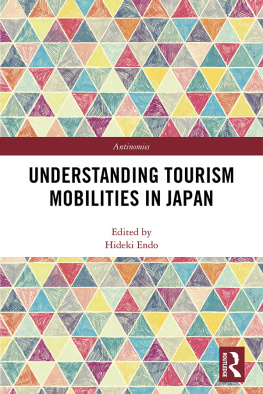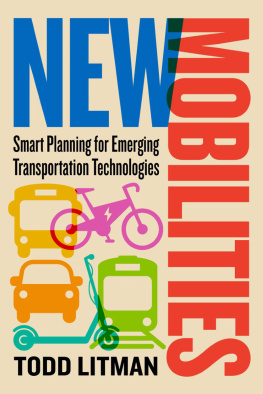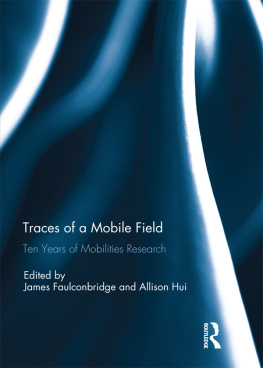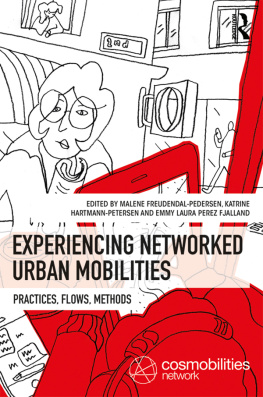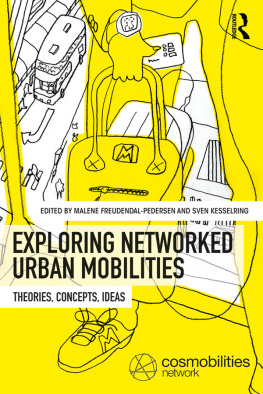Table of Contents
Guide
Print Page Numbers
Understanding Tourism Mobilities in Japan
The total number of foreign tourists received in countries throughout the world was 530 million in 1995. That number broke through the 1 billion mark for the first time in 2012, at 1,035,000,000. In 2015, it reached 1,180,000,000. According to Anthony Elliott and John Urry, modern society has been characterized as being mobile, and within that we are also living mobile lives.
In modern society, flows of people, things, capital, information, ideas and technologies are constantly occurring, and as they are merging like a violently rushing stream, what could be termed a landscape of mobilities has appeared. Social realities are in flux and are transforming to become different than they were before. This volume will expand the inquiry of tourism mobilities comprehensively and clearly from the fields of humanities and social sciences. In particular, tourism mobilities has been actively investigated up to now in the UK, US, Europe and Australia, but even though the Japanese body of literature contains a great many excellent studies of Japanese examples, there are almost no English-language articles presenting their results.
Publishing examples of Japanese tourism mobilities will not only foster new and exciting lines of inquiry for existing and future research on tourism mobilities, but will also have implications for humanities and social sciences throughout the world.
Hideki Endo is a Professor in Tourism Research in the Faculty of Letters and Executive Director of the Institute of Humanities, Human and Social Sciences at Ritsumeikan University, Japan. He has studied the sociology of tourism, especially the social transformation that mobility and tourism bring. Among his publications are Tourism Mobilities (2017), Media and Culture (2017), Space and Media (2015), Tourism and Media (2014), Contemporary Cultural Studies (2011) and Actualities in Sociology of Tourism (2010).
ANTINOMIES
Innovations in the Humanities, Social Sciences and Creative Arts
Series Editor: Anthony Elliott
Hawke Research Institute, University of South Australia
This Series addresses the importance of innovative contemporary, comparative and conceptual research on the cultural and institutional contradictions of our times and our lives in these times. Antinomies publishes theoretically innovative work that critically examines the ways in which social, cultural, political and aesthetic change is rendered visible in the global age, and that is attentive to novel contradictions arising from global transformations. Books in the Series are from authors both well-established and early careers researchers. Authors will be recruited from many, diverse countries but a particular feature of the Series will be its strong focus on research from Asia and Australasia. The Series addresses the diverse signatures of contemporary global contradictions, and as such seeks to promote novel transdisciplinary understandings in the humanities, social sciences and creative arts.
The Series Editor is especially interested in publishing books in the following areas that fit with the broad remit of the series:
New architectures of subjectivity
Cultural sociology
Reinvention of cities and urban transformations
Digital life and the post-human
Emerging forms of global creative practice
Culture and the aesthetic
Subverting Consumerism
Reuse in an Accelerated World
Edited by Robert Crocker and Keri Chiveralls
Understanding Tourism Mobilities in Japan
Edited by Hideki Endo
For a full list of titles in this series, please visit www.routledge.com/Antinomies/book-series/ANTIMN.
Understanding Tourism Mobilities in Japan
Edited by Hideki Endo

First published 2021
by Routledge
2 Park Square, Milton Park, Abingdon, Oxon OX14 4RN
and by Routledge
52 Vanderbilt Avenue, New York, NY 10017
Routledge is an imprint of the Taylor & Francis Group, an informa business
2021 selection and editorial matter, Hideki Endo; individual chapters, the contributors
The right of Hideki Endo to be identified as the author of the editorial material, and of the authors for their individual chapters, has been asserted in accordance with sections 77 and 78 of the Copyright, Designs and Patents Act 1988.
All rights reserved. No part of this book may be reprinted or reproduced or utilized in any form or by any electronic, mechanical, or other means, now known or hereafter invented, including photocopying and recording, or in any information storage or retrieval system, without permission in writing from the publishers.
Trademark notice: Product or corporate names may be trademarks or registered trademarks, and are used only for identification and explanation without intent to infringe.
British Library Cataloguing-in-Publication Data
A catalogue record for this book is available from the British Library
Library of Congress Cataloging-in-Publication Data
A catalog record has been requested for this book
ISBN: 978-1-138-38775-1 (hbk)
ISBN: 978-0-429-42608-7 (ebk)
Typeset in Times New Roman
by Wearset Ltd, Boldon, Tyne and Wear
Contents
Figures
Tables
Adam Doering is an Associate Professor of Tourism at Wakayama University, Japan. He has published widely on a range of topics, including critical tourism studies, lifestyle sports in East Asia, destination marketing organization (DMOs) and sustainable tourism and transportation. His current research examines the role of surf tourism in Fukushimas post-disaster recovery.
Tim Edensor is Professor of Human Geography at Manchester Metropolitan University and a Research Fellow in Geography at Melbourne University. He is the author of Tourists at the Taj (1998), National Identity, Popular Culture and Everyday Life (2002), Industrial Ruins: Space, Aesthetics and Materiality (2005), From Light to Dark: Daylight, Illumination and Gloom (2017) and Stone: Stories of Urban Materiality (2020). He is also the editor of Geographies of Rhythm (2010) and co-editor of The Routledge Handbook of Place (2020), Rethinking Darkness: Cultures, Histories, Practices (2020) and Weather: Spaces, Mobilities and Affects (2020).
Hideki Endo is a sociologist, Professor/Vice Dean at the College of Letters, Executive Director of the Institute of Humanities, Human and Social Sciences and Vice President of Research Organization to manage and support Research Institutes and Research Centers at Ritsumeikan University, Kyoto, Japan. Endo is also editor-in-chief of The Tourism Studies published by the Japan Institute of Tourism Research, and served on the editorial board of the Asian Journal of Tourism Research which was one of the international academic journals on tourism studies. He has a wide range of research interests in the sociology of tourism, and has published many books and research articles on various aspects of the sociology of tourism. His current main research interest is tourism mobilities, especially focusing on (1) the relationships between tourism, media, popular culture and social communications in a mobile digital age, and (2) the mobilization of social risks concerning human and natural disaster, including pandemic viruses such as COVID-19.

